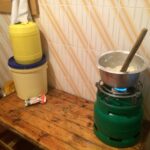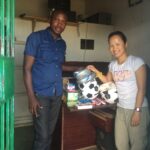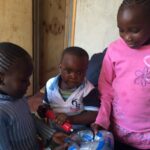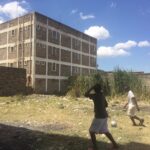Little did I know that I would end up waiting for almost 4 hours for my pick up from the time I stepped out of Nairobi’s international airport…at 2:45am. Sitting on the sidewalk with my bags watching groups of tourists get swept away by representatives holding name cards made me look and feel pretty pathetic. Due to the ungodly hour, there were only a handful of touts attempting to sell safari tours between stifled yawns, and even they pitied me. Fortunately this foreign country has 2 national languages, one of which is English. Whew.
Naturally everything worked out in the end (as they always do) and it turned out that my program manager, Josephat, was simply confused with my arrival date. (Funny, because one tout suggested he mixed up Saturday and Sunday due to the wee early hour, and said that was common.) Sure, it sucked waiting for 4 hours in the middle of the night, jet lagged and slightly bewildered and without an agenda or plan B. But had it not been for that small misfortune I never would have sampled genuine Kenyan hospitality, all within my first hour from stepping foot in the country.
Four “touts” (are they still considered touts if they are polite, friendly, and not annoying?) approached me in hope to sell me a taxi ride or safari ride, but they were the most soft-spoken people I had ever met in my life. For someone hustling to sell something at 3am, they sure weren’t aggressive about it. One even apologized twice for interrupting a conversation I had with another airline passenger. Another helped me by making repeated phone calls to my program manager (I had his number on file). Fearing that the demand for a tip was in queue, I initially denied any help until I sensed he was genuinely trying to help me. And he was.
After an hour and a half I figured I’d get off the sidewalk and wait inside the airport. As I approached the terminal exit, the sole man standing at the doors told me I wouldn’t be able to go back in since it was the exit. Having seen me wait an extended period on the sidewalk, he inquired of my troubles. In the end, all I wanted was a decent place to wait. He informed me of a 24-hour café just down the street with free wifi, and he led the way. And it literally was just across the street.
I offered to buy him a coffee and he gladly accepted. He also tried to call Josephat, but without luck. We chatted for 30 minutes until the next plane landed so he could go back out and try to sell. He was the same age as me, with a wife and three children. He had traveled to numerous countries in Africa and the Middle East, and spoke English, Swahili, Hindi, and Arabic. He taught me how to say Thank You, You’re Welcome, and How are you? in Swahili. He gave me his business card and we shook hands when he left, but he returned within 15 minutes and handed me his phone. Josephat had returned his call!
We sorted everything out. I chose to wait at the café with my luggage, and my new friend returned to the international terminal, where he waited for Josephat to arrive so he could direct him over to the café. I gave him a big thank you hug and we snapped a photo together before he left.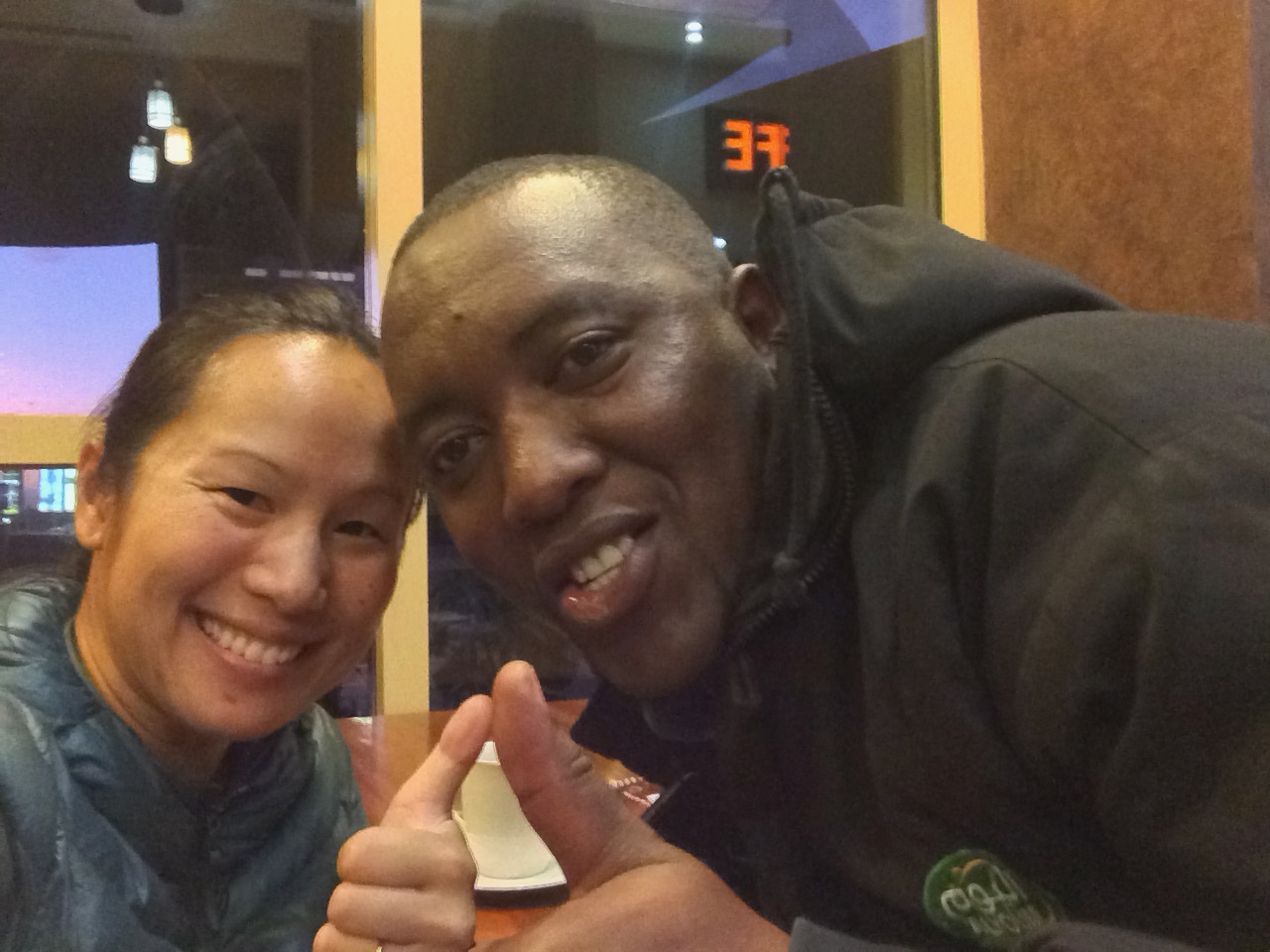
From there everything went smoothly. Josephat met me at the café, hired a taxi, and we made our way through the congested Nairobi to the suburb of Githurai, where I would be staying and volunteering. The drive through Nairobi was fascinating; already at 7am, foot traffic competed with the motorcycles, tuk-tuks, wheeled carts, buses, and trucks. Then there were the unbelievable amounts of trash. Handfuls of small charcoal fires, either for warmth or for cooking. Pollution and dust hovering in the air. Massive, vulture-like birds preying from the city street’s tree tops. I remained inconspicuous behind the tinted window as I watched the early Saturday morning unravel before me.
Finally we turned off the paved road onto a rough, dirt road into the cinder block neighborhood of Githurai. I thought Nairobi was rough. Githurai was exponentially more painful.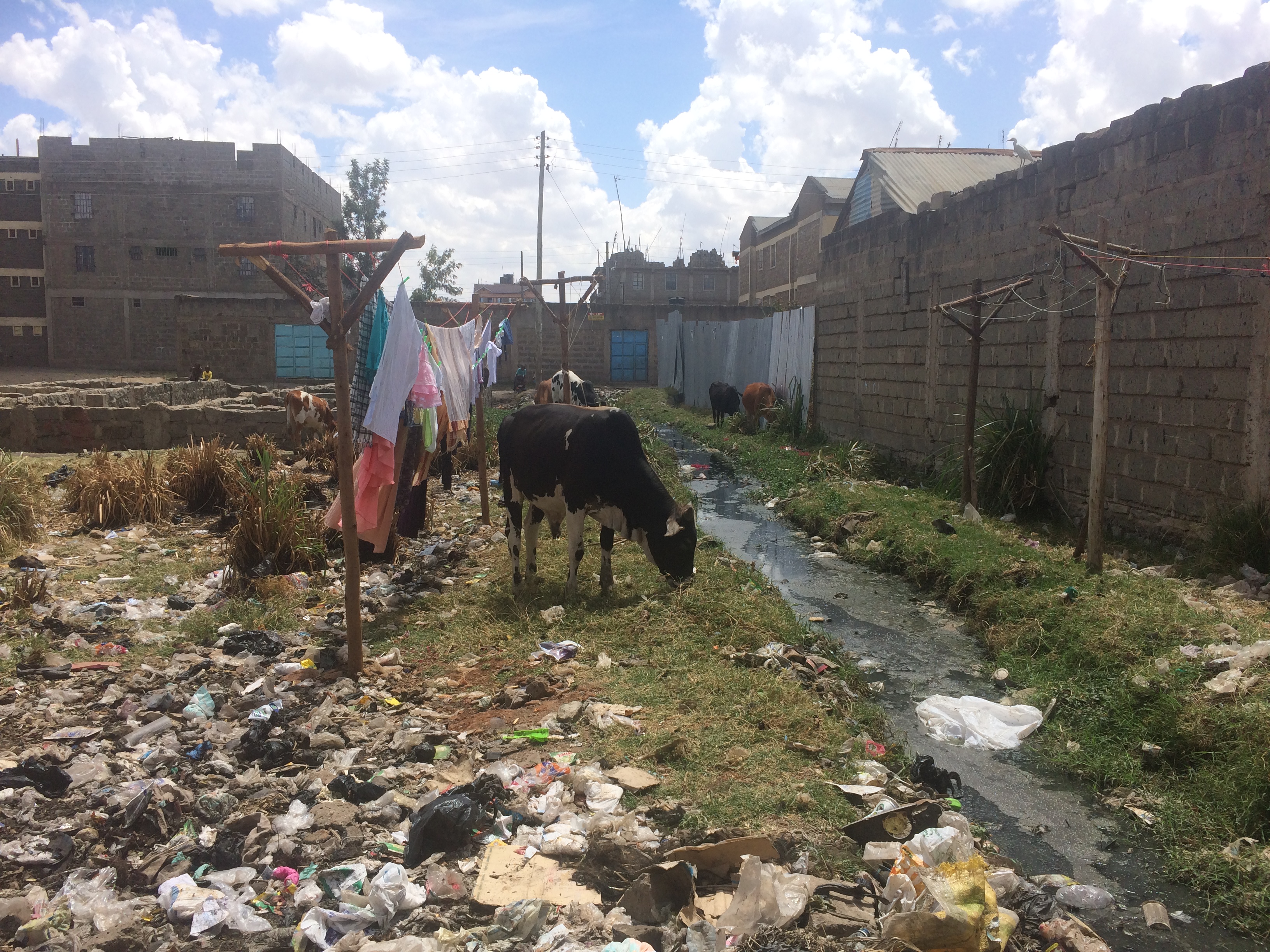
And because African women love braids and hair extensions, almost all the trash included old and raggedy hair extensions. Small tufts of fake hair literally dotted the streets.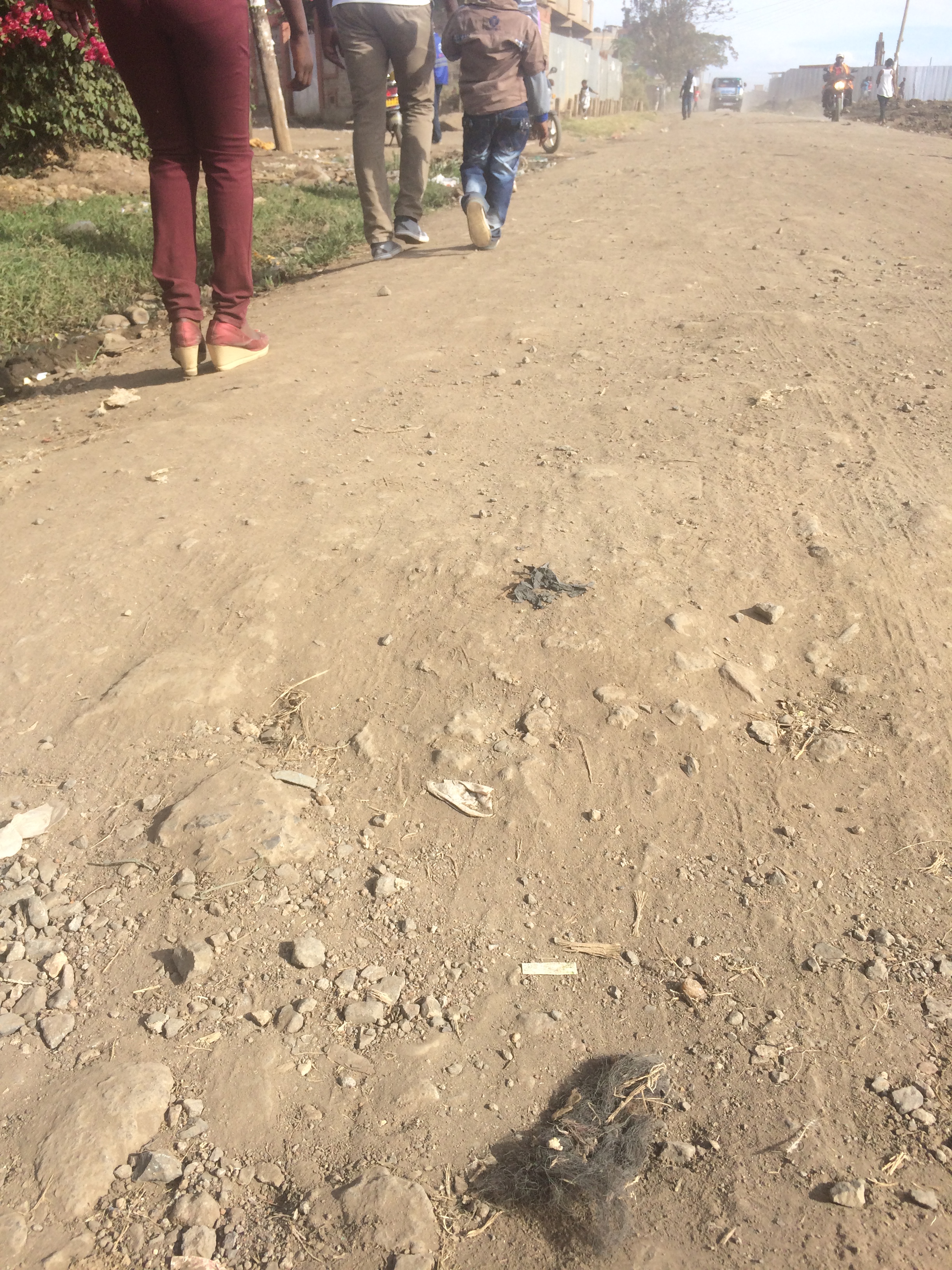
Josephat, his wife, and two children had just moved into a 2-bedroom apartment in a still developing apartment complex. Unlike the previous studio apartment he shared with his family, this new home had a shower that worked half the time. That, electricity, and a regular toilet that usually flushed made me feel relieved and somewhat spoiled. Unlike in South America, I could even put toilet paper in the toilet! YAY!
The kitchen, however, was bare bones. At the very least I had expected a portable gas stove like I’ve seen in India, but it was far more primitive. They used portable propane tanks, larger versions of similar propane tanks I use for camping. Amazing that tasty family meals all come from the propane tanks. I already struggle with my tiny, 4-burner stove back in San Francisco.
I had my own room, equipped with a bed, table, and mosquito net. At 5,800 ft. elevation in an equatorial zone, Nairobi has perfect weather year-round, hardly with any mosquitos typically swarming in tropical, equatorial regions.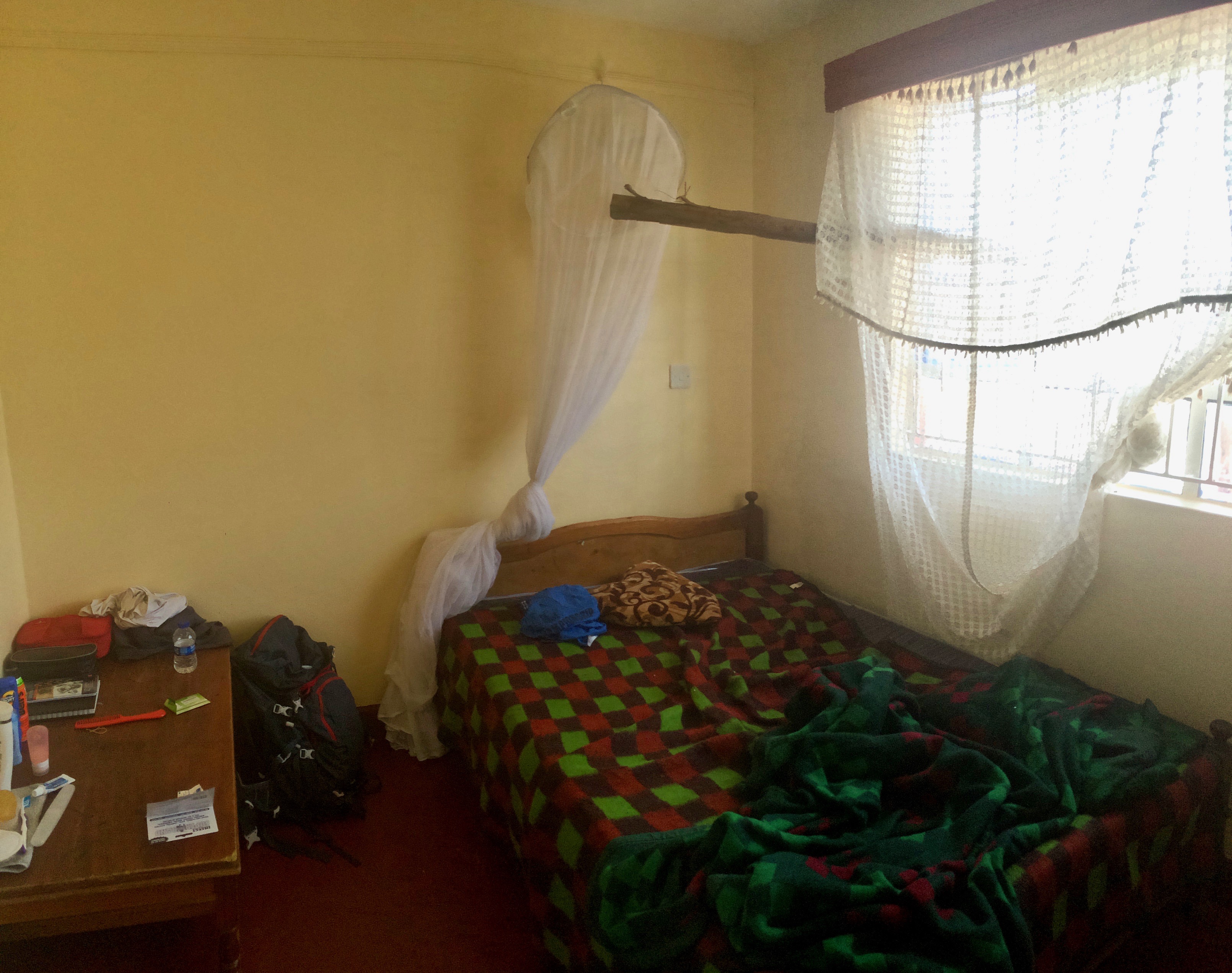
View from my bedroom window: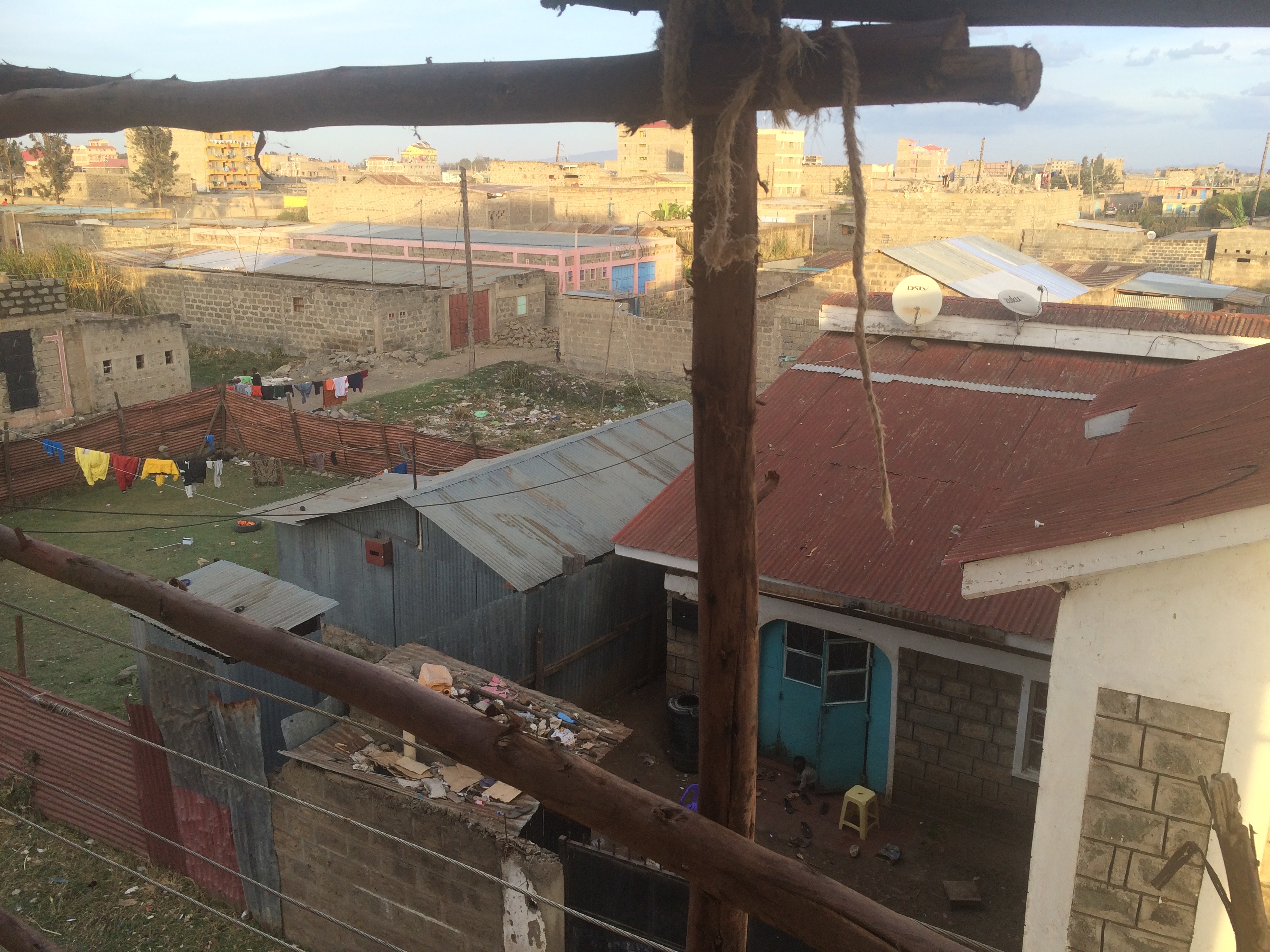
Me and Ceinwen, Josephat’s sweet and perky nine year old daughter: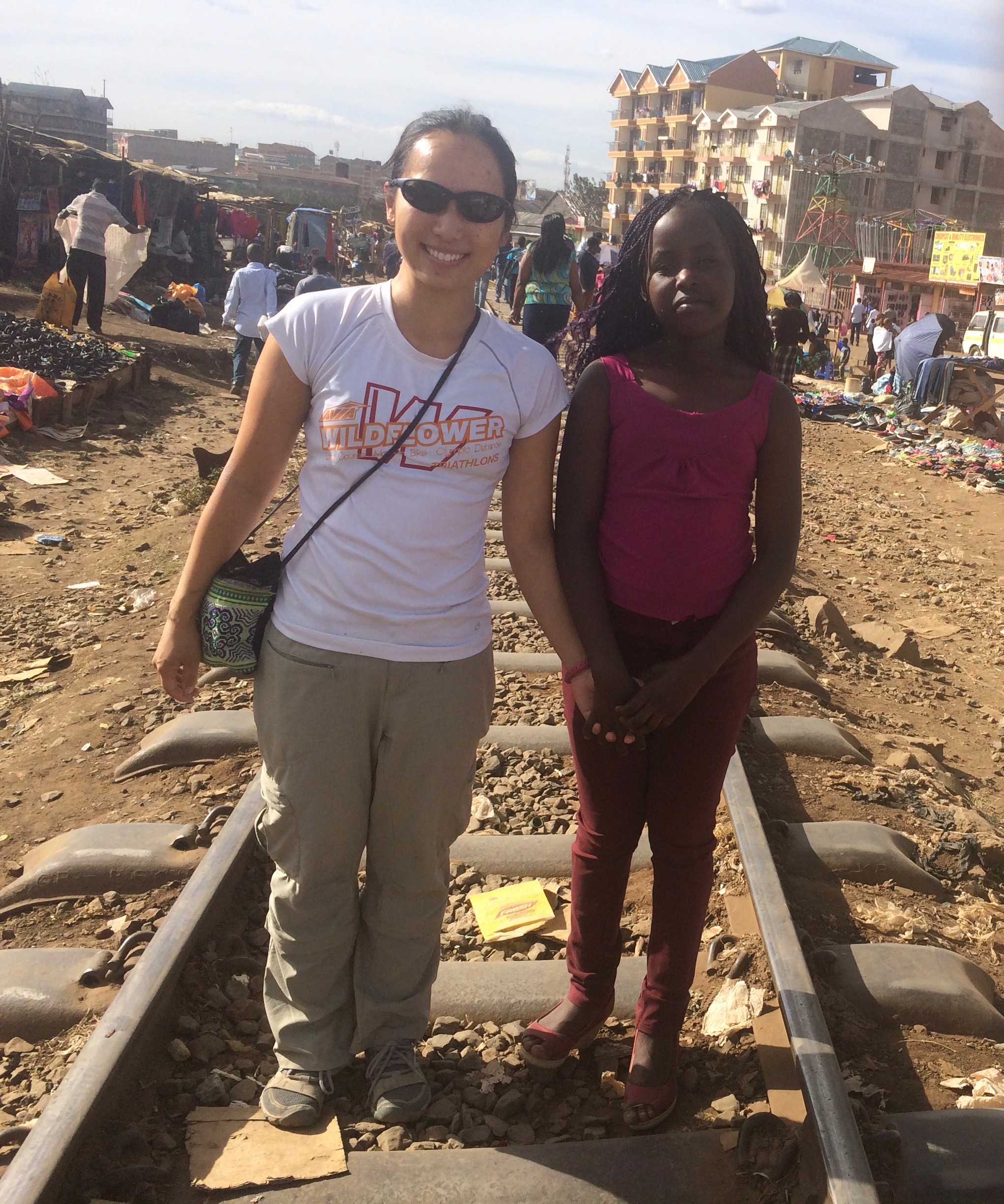
Excited to present donations to the organization and gifts to the family, I pumped air into several of the soccer balls I brought with me. Josephat’s kids and their cousins eagerly ran outside to play with the shiny, brand new balls. Other curious neighborhood kids joined in on kicking the balls against the apartment wall. Despite playing in a small field filled with trash and remnants of ash from cooking charcoal, the children were thrilled. My heart swelled with joy.
Later in the day Josephat filled me in about the creation, mission, and struggles of his organization, Fountain Youth Initiative (FYI). I had already known that the rough neighborhood of Githurai is home to a number of Sudanese refugees and the organization’s mission is to provide aid and education to the disadvantaged youth. In addition to fundraising for, the education of, and the distribution of sanitary pads to girls between 10-18 years old, other projects include supplying disadvantaged children with school uniforms and supplies and equipping adults with vocational skills and small loans to start new businesses. Like any nonprofit, FYI struggles with sustainability. Researching and writing proposals for grants are an ongoing effort, but sustainable projects are key in growth.
I assisted with various tasks within the office, with the main task of redesigning the organization’s website and working with children in their art program. My own personal project was establishing an online shop in hope to earn a small profit to fund the kids’ schooling. You can check out the shop here. (All proceeds go toward Fountain Youth Initiative!)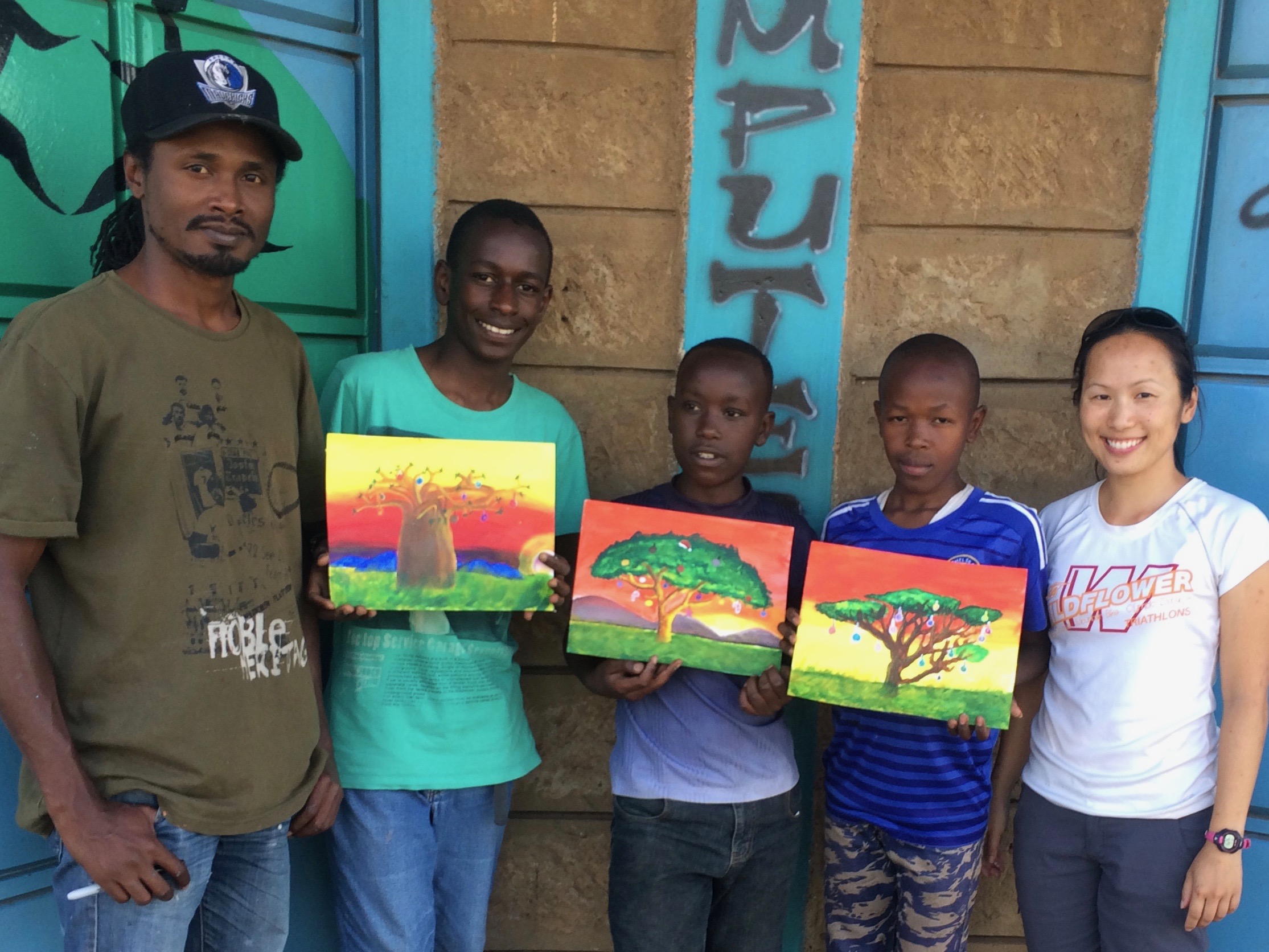
FYI has explored, continues to, and is open to new ways to generate income. One method is teaching the community, mostly adults, basic computer skills for a small fee. Another is raising chickens for the purpose of collecting and selling eggs. Previous volunteers had created a large chicken coop and fundraised enough money to purchase a large amount of chickens, and now they have 500 chickens that produce approximately 300-400 eggs per day. FYI has hired one man to run most of the chicken operation, which involves egg collecting, feeding, cleaning, crating, and selling to shops. One crate of 30 eggs sells for 270 Kenyan Shillings (KES), or $2.70. At an average of 12 sold crates per day, that’s about $32/day. All proceeds from the egg operation funds sanitary pads—not bad considering 1 package of pads, which lasts 1 menstrual cycle, costs 50 KES (50¢) each. That’s potentially 64 girls a day who can get a menstrual cycle covered! Chickens for pads!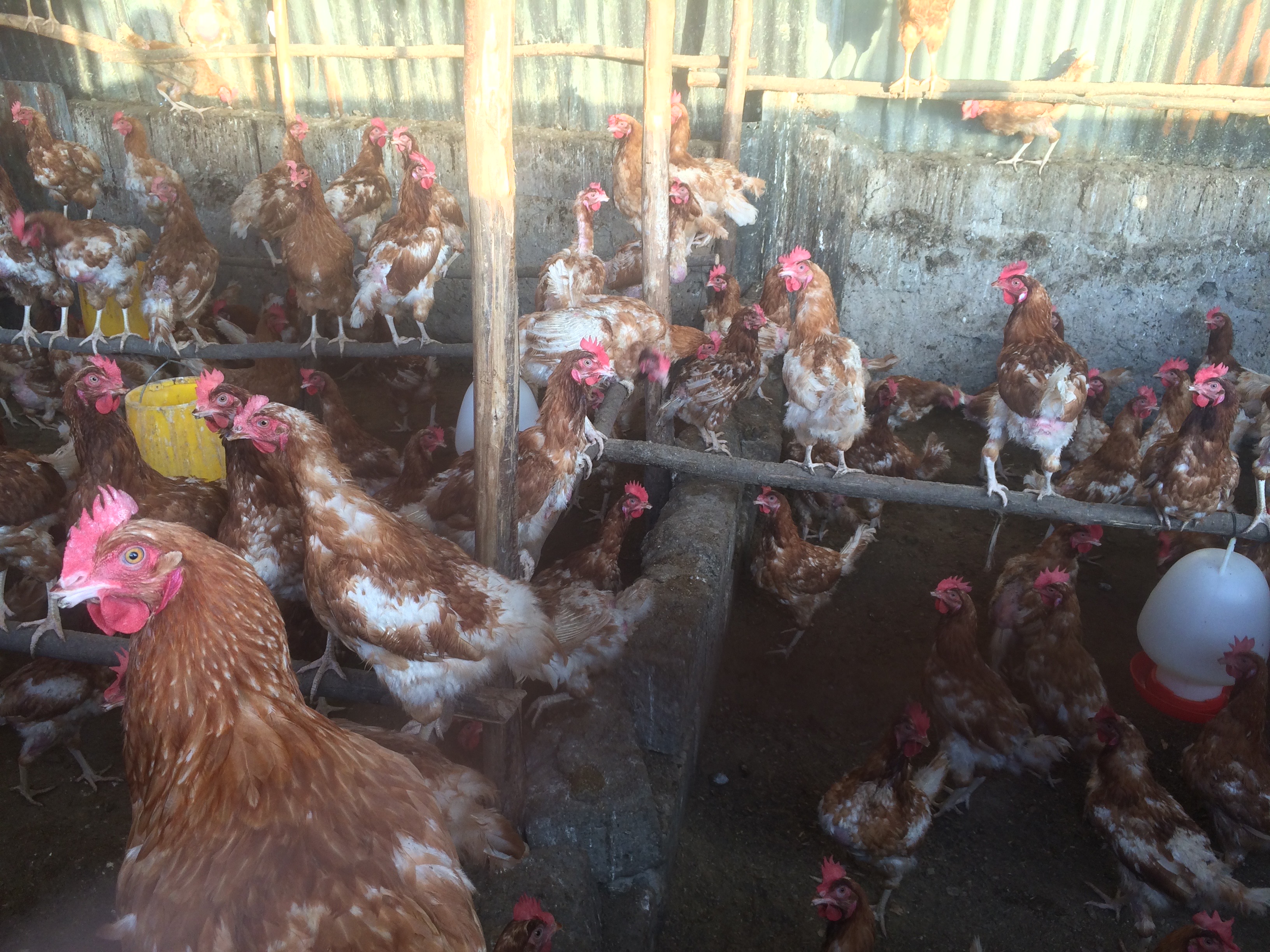
My first day in Nairobi immediately fascinated and engulfed me in Kenyan lifestyle and culture. I soon fell in love with street samosas and chapati, and quickly grew tired of ugali. I immediately became the famous neighborhood muzungu, greeting everyone with Jambo! and making sure to thank them with “Asante sana!” And as I slowly became accustomed with the tuk tuks and boisterous matatus, I accepted the gawks, stares, and bewilderment from all the locals. Unlike in other developing countries, Kenyans treated me like a human instead of a walking ATM. Although short, I knew my next several weeks in Githurai would fulfill my reasoning for coming to Kenya—to learn about a nonprofit in a community based organization, to see an authentic way of life, and more importantly, to make an impact in the community.

